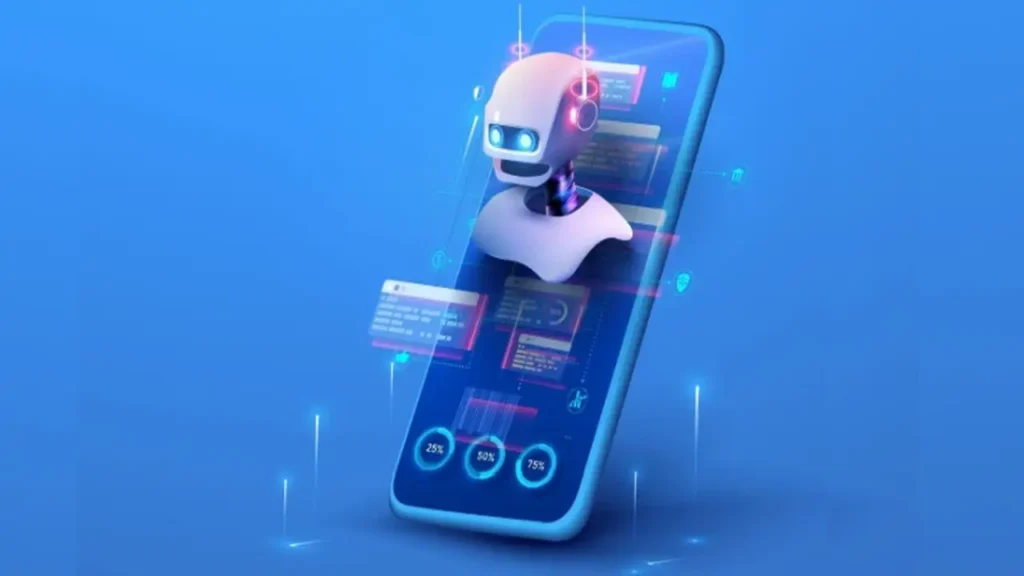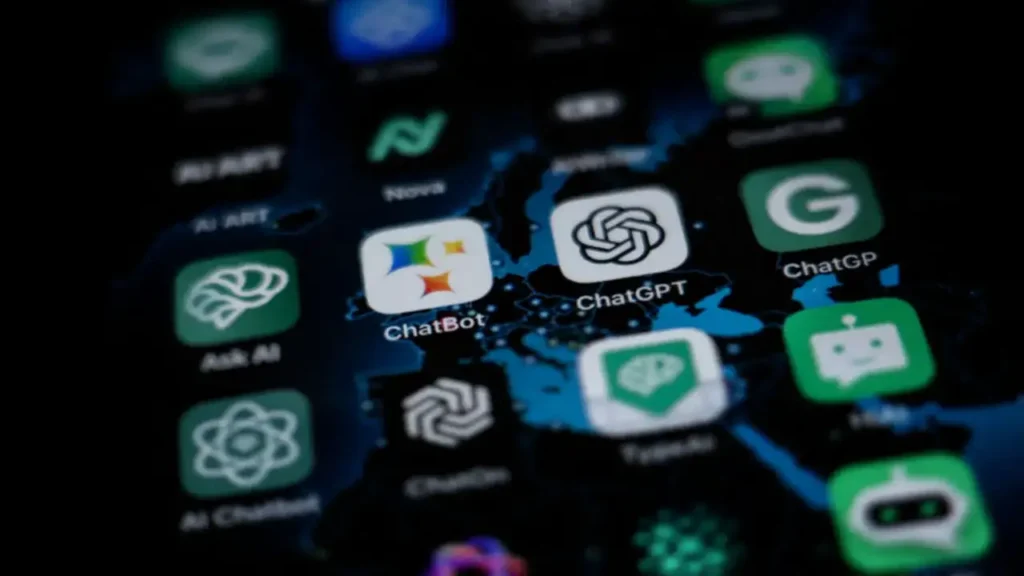Best AI Apps for Android: Unleashing the Power of Artificial Intelligence on Your Smartphone
Artificial Intelligence (AI) has transformed from a futuristic concept into a daily reality, especially in the realm of mobile applications. With the evolution of technology, Android users have access to a plethora of AI apps designed to simplify tasks, enhance productivity, and offer entertainment and personalization like never before. This article explores the best AI apps for Android, offering a comprehensive guide to harnessing the power of AI in your palm.
Understanding AI Apps
AI apps are software applications that incorporate machine learning and artificial intelligence algorithms to perform tasks that typically require human intelligence. These tasks include learning, decision-making, language translation, and more. The integration of AI in Android apps has opened new frontiers, providing users with smarter, more intuitive experiences.
Evolution of AI Apps on Android
The Android platform has been at the forefront of incorporating AI into mobile apps. With Google’s continuous investment in AI and machine learning, Android has seen an influx of apps that not only respond to user input but also learn from user behavior to offer personalized experiences.
AI Apps for Daily Life
AI-powered apps have made significant inroads into daily life, offering tools that assist with everyday tasks and personal management.
Personal Assistants and Productivity Apps
Apps like Google Assistant and Microsoft’s Cortana use AI to understand natural language, making them capable of performing tasks like setting reminders, sending messages, and searching the internet based on voice commands. Productivity apps powered by AI help in managing tasks, scheduling meetings, and optimizing daily routines, ensuring a more organized and efficient day.
AI-Powered Health and Fitness Apps
Health and fitness apps utilize AI to offer personalized workout and diet plans. By analyzing user data, these apps provide recommendations and adjustments to routines, ensuring optimal health outcomes.

AI in Entertainment
The entertainment sector has also embraced AI, offering personalized and interactive experiences.
Music and Video Streaming AI Apps
AI algorithms in apps like Spotify and Netflix analyze user preferences to recommend songs and movies. This personalization enhances user engagement and satisfaction.
Gaming and Interactive Storytelling Apps
AI in gaming apps adapts to the player’s behavior, creating dynamic challenges and storylines. This results in a unique and engaging gaming experience for each user.
AI for Photography and Art
AI has revolutionized the field of photography and graphic design on Android devices.
Image Editing and Graphic Design Apps
Apps like Adobe Photoshop Express and Canva use AI to automate complex editing tasks, making professional-level photo editing accessible to all users.
Photography Enhancement Apps with AI
AI-driven photography apps enhance photos by optimizing lighting, suggesting composition, and even removing unwanted objects, transforming ordinary shots into professional-grade images.
AI for Learning and Education
AI apps in the education sector provide personalized learning experiences, making education more accessible and effective.
Language Learning Apps with AI
Apps like Duolingo and Babbel use AI to adapt the learning path based on the user’s progress, strengths, and weaknesses, providing a tailored learning experience.
Educational and Knowledge-Based Apps
AI-driven educational apps provide interactive and personalized learning experiences, making complex subjects easier to understand and more engaging.

AI for Business and Finance
In the business and finance sector, AI apps offer tools for better financial management and business operations.
Financial Planning and Investment Apps
Apps like Mint and Acorns use AI to analyze financial data, offering personalized advice on budgeting, saving, and investing.
Business Analytics and Automation Apps
AI-driven business apps automate routine tasks, provide insightful analytics, and assist in decision-making, leading to increased efficiency and productivity.
AI for Home and Lifestyle
AI apps extend their benefits to home management and lifestyle improvement.
Smart Home Integration Apps
Apps like Google Home and Samsung SmartThings use AI to control and automate home devices, providing a seamless and intelligent living environment.
Lifestyle Improvement Apps with AI
Lifestyle apps powered by AI offer personalized recommendations for books, recipes, and even fashion, enriching the user’s lifestyle choices and experiences.
AI and Security
Security is a paramount concern, and AI apps contribute significantly to protecting user data and privacy.
Cybersecurity and Data Protection Apps
AI-powered security apps monitor and protect against potential threats, ensuring the safety of user data and privacy.
AI-Based Monitoring and Surveillance Apps
Surveillance apps use AI to analyze video feeds, detect unusual activities, and provide real-time alerts, enhancing the security of premises.
Customizing Android with AI
AI allows users to personalize their Android experience to an unprecedented level.
AI-Based Customization Tools for Android
Tools like SwiftKey and Nova Launcher use AI to learn user preferences and offer personalized keyboard inputs and home screen setups.
Personalization Apps using AI
AI-driven personalization apps analyze user behavior and preferences to offer customized themes, wallpapers, and app suggestions, making each device uniquely tailored to its user.

Challenges and Considerations
While AI apps offer numerous benefits, there are challenges and considerations that users need to be aware of.
Privacy Concerns in AI Apps
The use of AI in apps often involves the processing of personal data. Users need to be cognizant of the privacy policies of apps and understand how their data is being used and protected.
Balancing Performance and Battery Usage
AI apps, especially those running complex algorithms, can be resource-intensive. Users need to balance the benefits of AI features with the impact on device performance and battery life.
Emerging Trends in AI Apps
The field of AI is constantly evolving, with new trends and innovations shaping the future of mobile applications.
Innovations and Future Outlook
Emerging technologies like neural networks and deep learning are set to offer even more advanced features and capabilities in AI apps, promising a future where smartphones become even smarter.
Integration with IoT and Wearable Devices
The integration of AI apps with IoT and wearable devices opens up new possibilities for health monitoring, home automation, and more, offering a seamless and interconnected experience.
Best AI Apps for Android
In this section, we delve into the specifics, reviewing and comparing some of the top AI apps available for Android users.
Review and Comparison of Top AI Apps
We’ll look at user ratings, features, and the unique aspects of each app, helping you make an informed decision about which AI apps best suit your needs and preferences.
User Experience and Ratings
Understanding the user experience and ratings can provide valuable insights into the app’s performance, reliability, and overall satisfaction.
AI Song Writer: The Harmonious Fusion Of Tech And Tunes
FAQs
What are the best AI apps for enhancing productivity on Android?
Several AI apps stand out for boosting productivity on Android devices. Noteworthy mentions include:
Todoist: Utilizes AI to prioritize tasks and set reminders, ensuring you stay on top of your to-do list.
Google Assistant: Offers hands-free assistance with scheduling, searching, and even controlling smart devices, all through voice commands.
Microsoft SwiftKey: Learns your writing style to provide more accurate autocorrect and predictive text, enhancing typing efficiency.
Evernote: Features AI-driven tools for organizing notes, documents, and images, making information retrieval swift and straightforward.
Trello: Integrates AI to automate task management and project tracking, fostering team collaboration and productivity.
How do AI apps personalize user experiences?
AI apps personalize user experiences by analyzing individual behavior, preferences, and interactions. They use machine learning algorithms to adapt their functionalities to suit each user’s unique needs. For instance, streaming apps like Spotify and Netflix recommend music and movies based on your listening and viewing history. Similarly, fitness apps tailor workout and diet plans based on your fitness goals and progress. This personalization not only enhances user satisfaction but also makes the apps more intuitive and user-friendly.
What are the privacy implications of using AI apps?
While AI apps offer convenience and personalization, they often require access to personal data to function optimally. This raises concerns about data privacy and security. Users must be vigilant about the permissions they grant and understand how their data is used, stored, and shared. It’s crucial to use apps from reputable developers and ensure they comply with data protection regulations like GDPR. Regularly updating app settings and reviewing privacy policies can also mitigate potential risks.
How do AI apps contribute to personal health and fitness?
AI apps significantly contribute to personal health and fitness by providing personalized insights and guidance. For example:
Fitness Apps: AI-powered fitness apps like Fitbod and Freeletics analyze your fitness level, adapt workout routines, and provide feedback on your form and technique.
Nutrition Apps: Apps like MyFitnessPal and Lifesum use AI to track your dietary habits, suggest meal plans, and offer nutritional advice based on your health goals.
Mental Health Apps: Platforms like Woebot and Headspace use AI to offer personalized therapy sessions, mindfulness exercises, and stress-relief techniques, catering to your emotional well-being.
Conclusion
The best AI apps for Android offer a world of possibilities, transforming smartphones into powerful tools for daily life, entertainment, learning, and more. As technology continues to evolve, the potential of AI in mobile apps is boundless, promising an exciting future for Android users.








